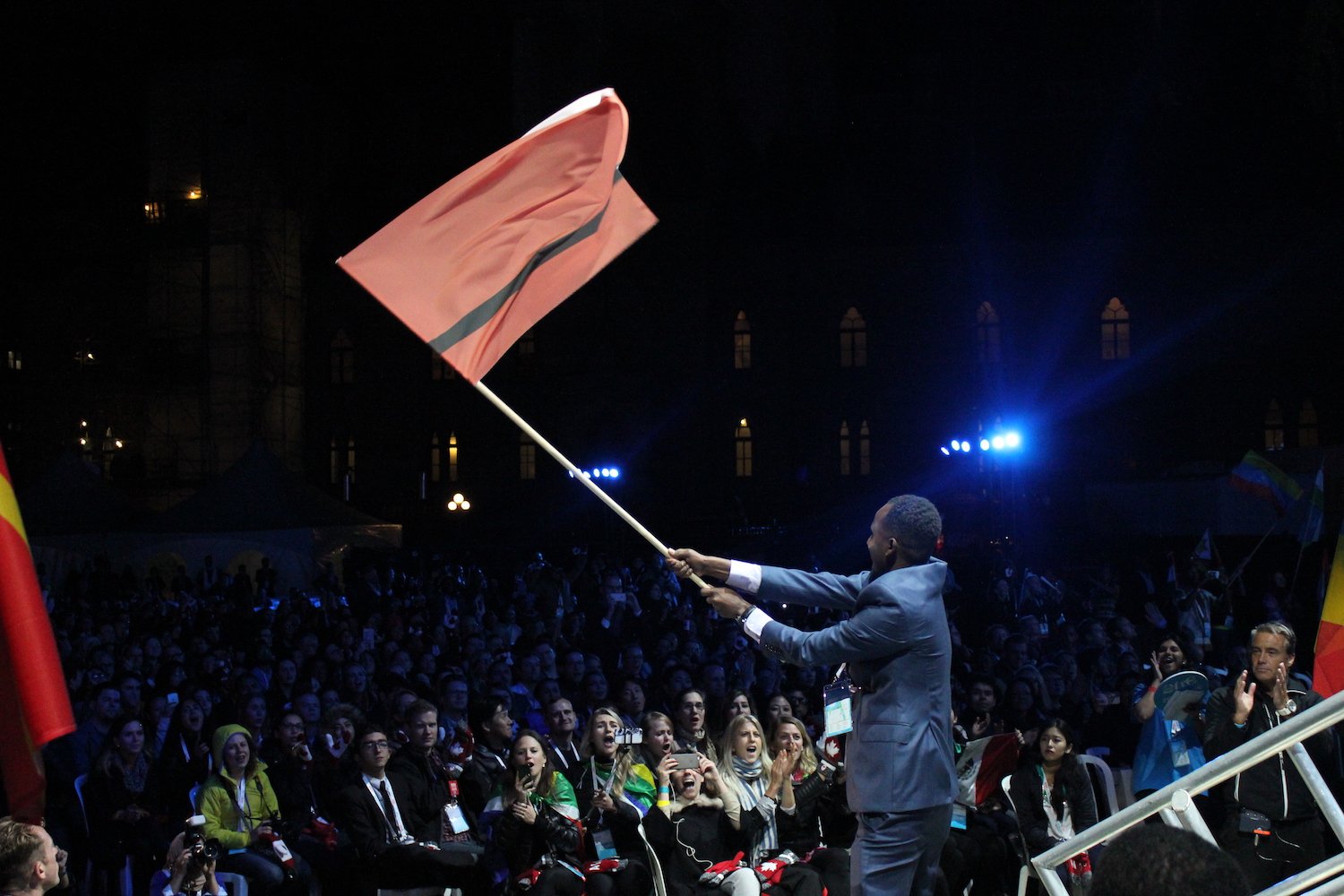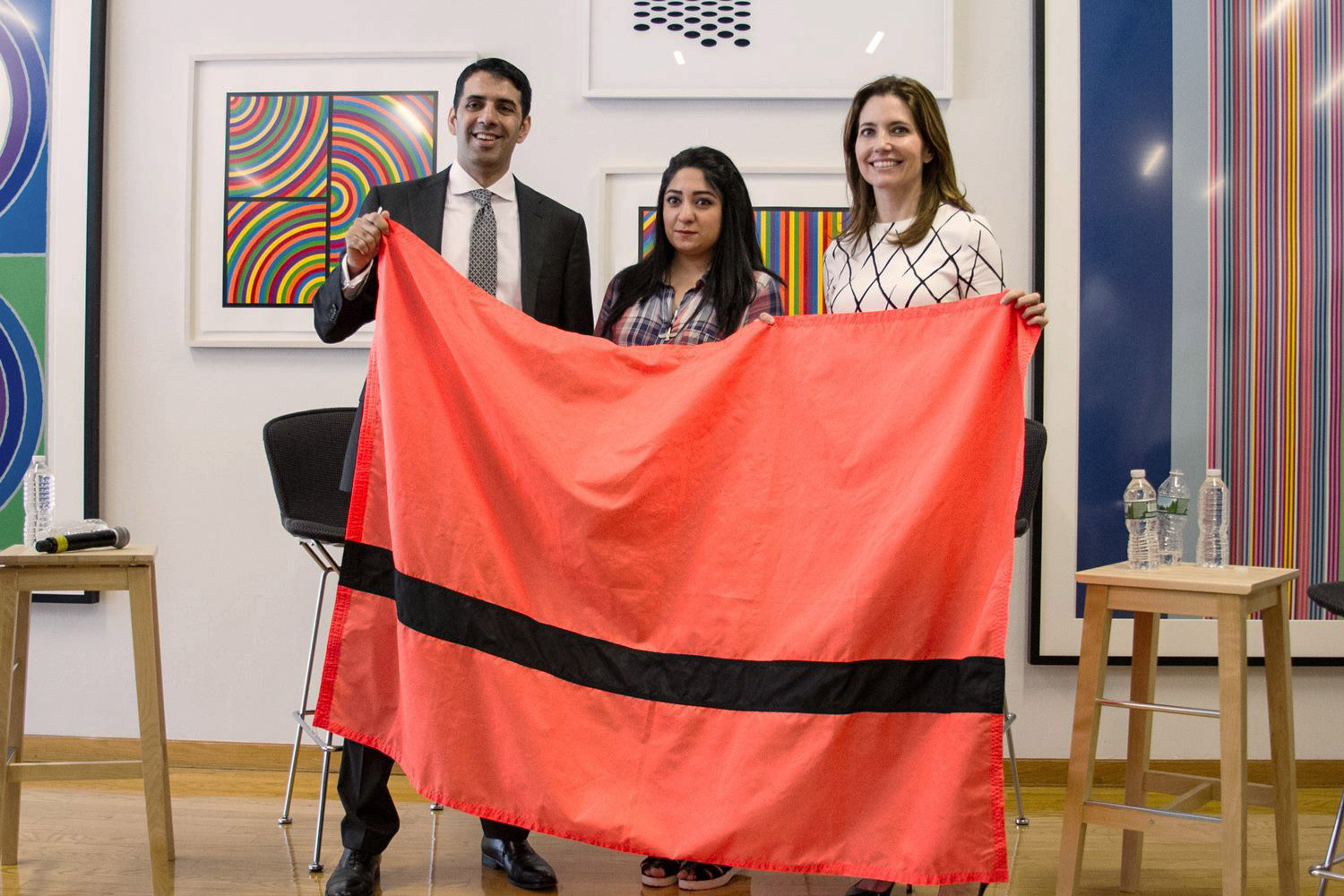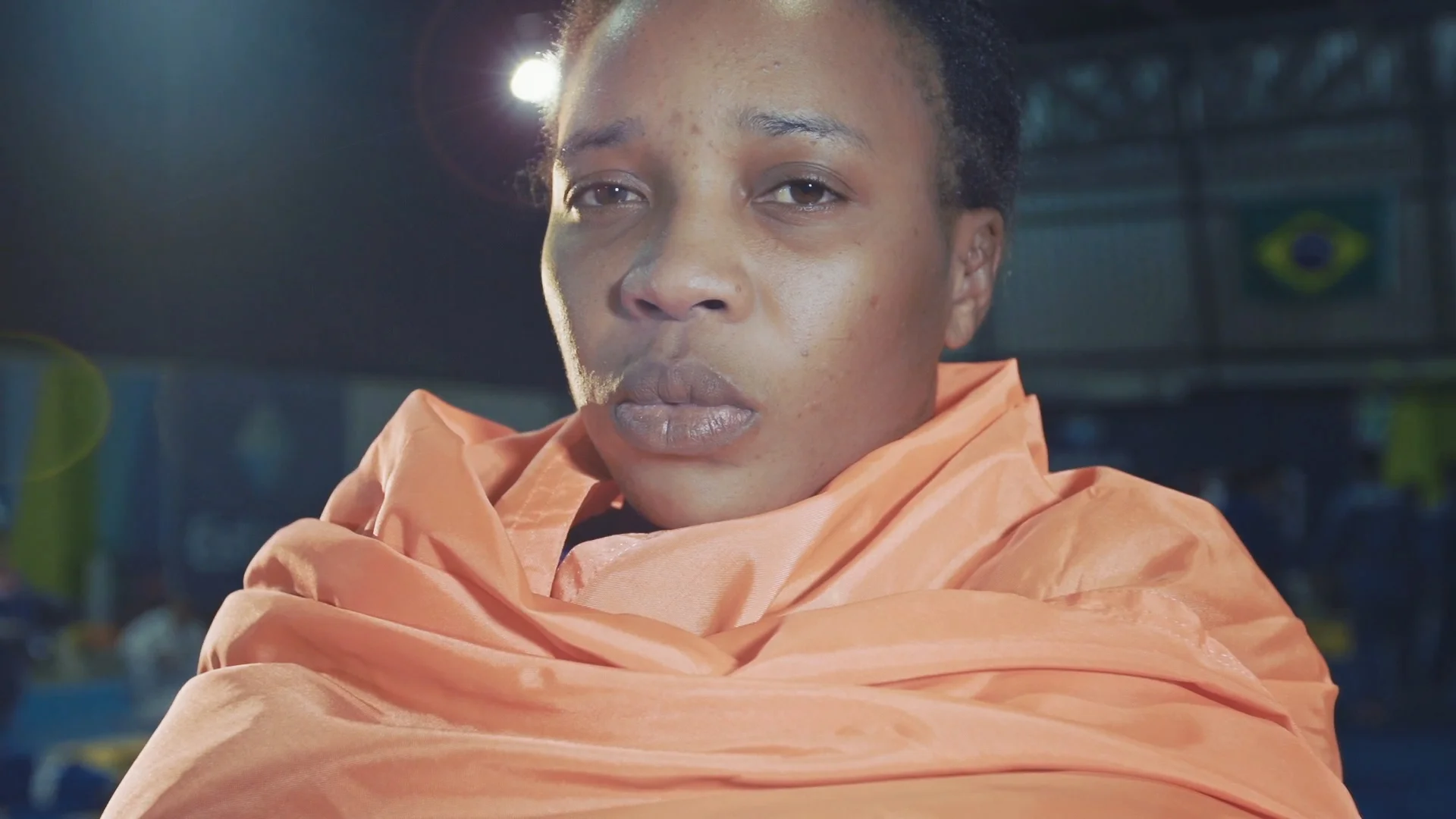For the first time ever, a refugee team was supposed to compete at the Olympic Games, representing 65 million displaced people worldwide, and for the first time ever, 10 athletes would be there with no national team to belong to, no flag to march behind and no anthem to be played for them.
In partnership with a group of refugees, we came up with the concept of the Refugee Nation. A nation reimagined to challenge geography and the notion of territories. Our nation is a borderless ideal, immersed in the core values of human rights, and above all, open, to taking in those in need anywhere in the world.
Together, we created a flag and an anthem, all refugees could call their own. To design the flag of this new nation, we teamed up with Yara Said, a Syrian artist who had to leave her own country to find asylum in Amsterdam. Yara was very familiar with the struggle and the complex circumstances brought up by forced displacement, so she had a insight:
“Black and orange is a symbol of solidarity with all these brave souls that had to wear life-vests to cross the sea to look for safety in a new country. Since I had wear one I have a personal engagement with these life-vests, and these two colors.”
The flag was inspired from the only passport so many refugees have used throughout their journey: life-vests. the flag is a vidid orange with a single black stripe, reminiscent of movement, pain, fear and hope.
we also created a unique DM piece to reinforce the flag’s meaning. With precisely 7 folds, we managed to make the refugee flag resemble the shape of a life vest.
The DM has been sent to influential people and entities a few weeks before the Olympics, encouraging them to show support to refugees during and after the games. The packaging includes a personal letter from the artist where she briefly tells her brave journey from war in Syria and explains her inspiration to design the flag.
WEBSITE
The anthem
To write the anthem, we invited a very special composer. Moutaz Arian,
a Syrian refugee currently living in Istanbul. He was a music scholar
in his fourth year at the University of Damascus, when he had to flee his own country as the situation in Syria deteriorated. Since the refugee crisis is a global issue, Arian decided to create an anthem without words to resonate beyond borders. His intention was to let music, as the most commonly understood language , speak for itself: “I want to make music not just for Kurds and Arabs. I want to make music for the whole world”.
The epic hymn’s high notes and rhythm were meant to portray the volatility
of the crossing the refugees have to undertake.
























